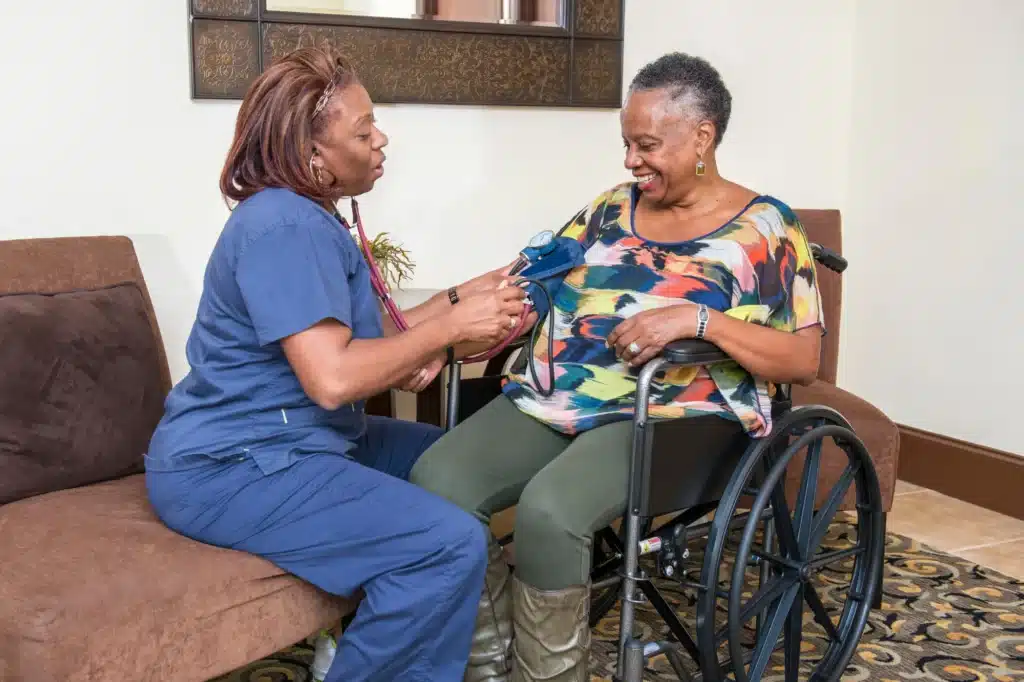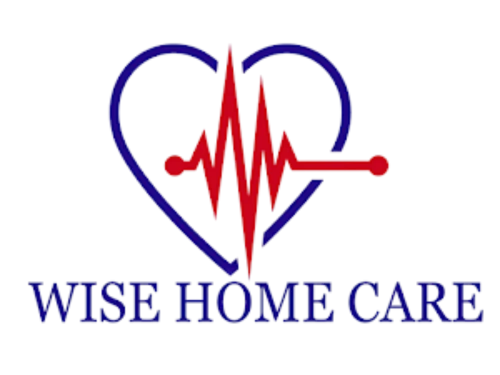
Is Your Family Member Struggling? Key Signs They May Need Home Care Support
In today’s fast-changing healthcare landscape, recognizing early warning signs that a loved one may benefit from home care, including services provided by wise home health, is crucial. Families often struggle to spot subtle changes in daily functioning, emotional stability, and overall well-being in aging or ill individuals. This guide offers clear indicators, outlines available home care services, and explains how early action can protect health and dignity, all based on current research and expert advice.
What Are the Common Warning Signs That Indicate a Loved One Needs Home Care?
Early identification of warning signs enables timely intervention that can preserve quality of life.
How Does Difficulty With Activities Of Daily Living (ADLs) Signal the Need for Home Care?
When a person struggles with simple tasks such as bathing, dressing, or eating, it may indicate a loss of independence and an increased risk of falls. Difficulty with standing or personal hygiene often reflects declining strength or mobility. Professionals use tools like the Katz Index of Independence to assess these abilities. Reduced self-care not only exposes an individual to physical harm but may also trigger low self-esteem and social isolation. In such cases, professional services (for example, those offered by Wise Home Care) and home adaptations like grab bars can help restore safety.
What Are the Signs of Trouble With Instrumental Activities Of Daily Living (IADLs)?
IADLs include more complex tasks such as managing finances, arranging transportation, cooking, and handling medications. Forgetting bills or routinely missing medications are clear signs of cognitive or organizational decline that can lead to legal or health complications. Home care support targeting IADLs might include meal planning, budgeting assistance, and appointment management. Regular monitoring of these tasks helps prevent further decline and promotes safer, independent living.
How Do Behavioral Changes Indicate Home Care Support Is Needed?
Shifts in behavior, such as increased irritability, sudden mood swings, confusion, or withdrawal, can signal cognitive decline, depression, or side effects from medications. When a usually calm individual becomes angry or excessively withdrawn, it may reflect conditions like dementia or anxiety disorders. A prompt evaluation by a physician or mental health professional is essential. Home care agencies can train caregivers to manage these changes, easing family stress and ensuring a supportive environment.
Why Is Social Isolation a Warning Sign For Home Care?
Withdrawal from social activities or a loss of interest in hobbies may indicate depression or cognitive decline. Social isolation affects mental health and can even contribute to conditions such as heart disease or hypertension. The CDC and mental health experts stress the importance of social engagement. Professional companion care services can help reduce loneliness, promote cognitive stimulation, and enhance overall quality of life.
What Medication Management Issues Suggest Home Care Assistance?
For many elderly individuals, managing multiple prescriptions safely is a challenge. Missing doses, confusing different medications, or taking them out of sequence can lead to severe complications including adverse reactions or disease exacerbation. Home care teams can help manage medication schedules using reminders and pill organizers, reducing the risk of hospitalizations and easing the burden on family members.
can also assist in ensuring proper medication management.
How Can Unexplained Injuries or Poor Hygiene Signal the Need for Care?
Regular unexplained bruises, cuts, or burns, along with a decline in personal hygiene, may indicate that a loved one is no longer caring for themselves adequately. Such issues can point to weakened physical strength, poor vision, or cognitive decline. Beyond risking infections and skin problems, poor hygiene undermines dignity. Professional home care can provide daily personal assistance and monitor changes, ensuring both safety and personal dignity.
What Types of Home Care Services Are Available to Support Your Family Member?
A range of services exist to meet various care needs—including personal, medical, and emotional support, while allowing individuals to remain at home.

What Is Personal Care and How Does It Help With Daily Living?
Personal care assistance focuses on everyday activities such as bathing, dressing, grooming, and mobility support. This service helps maintain a person’s independence and dignity while reducing the risk of accidents. By ensuring routines like toileting and meal preparation are followed, personal care improves physical well-being and boosts self-esteem. Comfort and familiarity in one’s own home foster a positive and secure environment.
How Does Companion Care Support Emotional and Social Needs?
Companion care addresses emotional and social isolation by offering regular interaction, conversation, and assistance with non-medical tasks. This type of care helps alleviate loneliness and can detect early signs of behavioral or cognitive shifts. Regular companionship not only improves mood but also motivates individuals to maintain social connections, which is important for overall mental health.
When Is Skilled Nursing Care Necessary for Your Loved One?
Skilled nursing involves care provided by licensed nurses for more complex medical needs. Whether for continuous monitoring, wound care, IV medication administration, or post-hospital recovery, skilled nursing is essential when chronic or acute health conditions are present. This service bridges the gap between hospital care and independent living, offering reassurance to worried family members while ensuring professional medical oversight in the home.
What Are Respite and Hospice Care Services?
Respite care provides temporary relief for family caregivers, allowing professionals to take charge for short durations, helping prevent caregiver burnout. Hospice care, in contrast, focuses on end-of-life support with an emphasis on comfort and dignity in terminal illness. Both services are vital; respite care sustains long-term caregiver health, while hospice care ensures compassionate, dignified treatment during life’s final stages.
What Are the Benefits of Home Care for Your Struggling Family Member?
Home care supports individuals by promoting independence, preventing accidents, and reducing stressful hospitalizations, all while offering personalized attention within a familiar environment.
How Does Home Care Help Maintain Independence and Dignity?
Staying at home with professional care allows individuals to continue making personal decisions and maintain established routines. This support prevents the loss of self-esteem associated with institutional settings. Adaptive solutions like grab bars or mobility aids can be seamlessly integrated, ensuring safety without sacrificing independence.
In What Ways Does Home Care Improve Quality of Life?
Regular assistance with daily tasks reduces physical strain and improves overall well-being. Familiarity with the home environment cuts down on stress and anxiety, resulting in fewer emergency incidents. Social interaction through regular caregiver visits also combats loneliness, while proactive health monitoring minimizes the risk of falls, infections, and other health disruptions.
How Does Home Care Enhance Safety and Reduce Hospitalizations?
Continuous monitoring in-home helps detect early signs of health deterioration, ensuring that intervention is prompt. Preventative measures such as regular check-ups and proper medication management can significantly lower the risk of falls and other accidents. The overall result is fewer hospital admissions, reduced healthcare costs, and a more stable home environment.
How Does Home Care Provide Support for Family Caregivers?
Sharing caregiving responsibilities with professional home care providers relieves family members from continuous stress and burnout. This collaborative approach allows families to maintain their emotional and physical well-being, while experts handle day-to-day care tasks. Guidance on managing care routines and navigating insurance complexities further eases the overall burden.
How Can You Assess Your Family Member’s Needs and Find the Right Home Care?
An effective assessment of care needs and careful selection of a home care agency are fundamental to ensuring long-term safety and quality of life.

What Steps Should You Take to Evaluate Home Care Needs?
- Document Daily Routine Changes: Keep a log noting any decline in personal hygiene, meal preparation, and overall activity.
- Conduct a Health Checklist: Utilize tools like the Katz Index of Independence to objectively gauge capabilities.
- Consult Health Professionals: Seek professional evaluations from physicians, nurses, or geriatric specialists.
- Include Family Observations: Gather insights from family members who notice subtle changes.
- Evaluate Environmental Factors: Check if the home is safe and equipped with necessary modifications.
These steps collectively provide a holistic view that aids in determining whether professional home care is required.
How Do You Choose a Reliable Home Care Agency?
When selecting an agency, consider the following:
- Reputation and Accreditation: Look for providers with verified licensing and positive client testimonials.
- Experience and Expertise: Choose an agency that has trained caregivers familiar with specific issues like mobility or cognitive decline.
- Service Flexibility and Personalization: Ensure the care plan can be tailored to meet unique needs.
- Staffing Ratios and Training: Confirm that the agency maintains adequate staffing levels and training standards.
- Transparent Cost Structures: Understand the fee structures and available funding options.
What Are the Typical Costs of Home Care and Funding Options?
Home care costs vary by service and region. Hourly rates may range from approximately $20 to $40, with possibilities for package deals or sliding-scale fees. Funding options include private pay, Medicaid, Medicare, long-term care insurance, and veteran’s benefits. Organized cost estimates and discussions with providers help in planning and managing expenses.
What Legal and Ethical Considerations Should You Know About?
It is important to understand privacy regulations such as HIPAA, and to ensure that home care contracts clearly state services, costs, and responsibilities. Ethical care respects the individual’s dignity and independence while ensuring their safety. Consult legal experts if issues of guardianship or consent arise.
How Does Home Care Address Specific Medical Conditions Affecting Your Loved One?
Home care is not just about daily living support, it can be tailored to manage specific chronic or acute medical conditions. Customized care plans help ensure that medical needs are met while allowing the individual to remain at home.
What Home Care Services Are Available for Alzheimer’s Disease?
For Alzheimer’s patients, home care creates a safe, familiar environment designed to reduce confusion and agitation. Services include assistance with daily routines, cognitive stimulation activities, and constant supervision to prevent wandering. This specialized care ensures both safety and emotional support.
How Can Home Care Support Parkinson’s Disease Management?
Individuals with Parkinson’s benefit from home care that assists with mobility and medication routines. Caregivers help facilitate physical therapy exercises and manage daily tasks while also providing social and emotional support to combat depression and anxiety associated with the disease.
What Role Does Home Care Play in Stroke Recovery?
A multidisciplinary approach is essential for stroke recovery. Home care offers skilled nursing, physical, occupational, and speech therapy in a comfortable setting. This coordinated support aids rehabilitation, monitors vital signs, and reduces the risk of complications leading to readmission.
How Is Home Care Used for Managing Chronic Conditions Like Diabetes?
Managing diabetes effectively requires consistent medication, diet, and blood sugar monitoring. Home care professionals can assist with routine checks, meal planning, and medication management to help maintain stable blood glucose levels. They also educate patients about healthy diet and exercise, promoting long-term independence and reduced complications.
What Are the Early Signs That Suggest It’s Time to Consider Home Care?
Recognizing subtle changes early can lead to timely interventions that prevent complications and support overall well-being.How to Recognize Subtle Changes in Daily Functioning?

Watch for gradual declines in the ability to complete everyday tasks such as cooking, bathing, or dressing. Reduced energy, slower movement, and needing extra time for activities may all signal that additional help is needed.
What Behavioral and Emotional Changes Should Raise Concern?
Sudden shifts such as increased irritability, depression, or noticeable apathy, and even confusion or forgetfulness not previously seen, should prompt a reassessment of care needs. These changes can affect both safety and overall quality of life.
When Do Safety Risks Indicate Immediate Home Care Needs?
Frequent falls, accidental injuries, or risky behaviors (like forgetting to turn off appliances) indicate urgent safety concerns. Immediate professional intervention and home modifications can significantly lower the risk of serious injury.
How Can Families Support Their Loved Ones During the Transition to Home Care?
A smooth transition to home care depends on open communication and collaboration between family members and care providers.
What Are Effective Communication Strategies With Your Family Member?
Discuss changes frankly and encourage your loved one to share their feelings and preferences. Use empathy, active listening, and clear language to build trust. Regular updates and meetings with both family and professionals help keep everyone aligned.
How Can Families Collaborate With Caregivers for Better Outcomes?
Working as a team allows families to share personal insights about the individual’s history and needs. Regular care logs and meetings foster transparency, ensuring that caregivers provide well-informed, compassionate support.
What Resources Are Available to Help Families Adjust?
Families can benefit from local support groups, government and nonprofit programs, online forums, and educational workshops. Many home care agencies also offer resource packages that include practical guides for navigating insurance, legal complexities, and care coordination.
Detailed List: Key Considerations When Evaluating Home Care Needs
- Personal Health Assessment – Detailed Evaluation of ADLs and IADLs: Document daily routines and note any decline in basic tasks; use standardized tools and professional guidance to assess needs.
- Environmental Safety Check – Home Modification and Risk Prevention: Inspect the home for hazards like poor lighting or slippery floors and implement necessary modifications to prevent injuries.
- Emotional and Behavioral Monitoring – Recognizing Mood Changes and Social Withdrawal: Observe for signs of irritability, sudden mood changes, or withdrawal which may signal underlying health concerns.
- Medication and Treatment Adherence – Ensuring Consistent Medical Management: Monitor for missed or mismanaged medications using tools such as pill organizers and regular health reviews.
- Caregiver Support System – Balancing Professional Assistance and Family Involvement: Ensure family caregivers receive support through respite care and regular professional check-ins to avoid burnout.

Detailed Comparison Table: Home Care Service Types
| Home Care Service | Primary Function | Key Benefit | Typical Client Condition | Funding Options |
|---|---|---|---|---|
| Personal Care | Assist with ADLs | Maintains independence and dignity | Elderly, post-hospital recovery | Private pay, Medicaid |
| Companion Care | Emotional support and social engagement | Reduces loneliness and improves mood | Isolation, mild cognitive impairment | Private pay, community programs |
| Skilled Nursing | Professional medical support | Reduces hospitalizations, ensures quality care | Chronic or post-surgical patients | Medicare, private insurance |
| Respite Care | Temporary caregiver relief | Prevents caregiver burnout | Families needing temporary relief | Medicaid, state funding |
| Hospice Care | End-of-life care | Maintains dignity and provides comfort | Terminally ill patients | Hospice benefits, private pay |
The table above offers a clear comparison to help families choose the right type of care.
Detailed List: Resources to Support Your Transition to Home Care
- Local Support Groups – Community and Peer Support: Provide a platform to share experiences and receive emotional and practical advice.
- Government and Nonprofit Programs – Financial and Logistical Assistance: Offer caregiver training, financial aid, and consultation services to ease the transition.
- Online Forums and Virtual Communities – Accessible Information and Peer Advice: Enable round-the-clock access to advice and shared experiences from others in similar situations.
- Educational Workshops and Training Sessions – Building Practical Skills: Equip families with caregiving skills, safety protocols, and emergency management techniques.
- Consultation Services by Home Care Agencies – Professional Guidance: Assist in assessing needs, designing personalized plans, and handling legal or insurance matters.
Frequently Asked Questions
Q: What are the early warning signs that indicate my family member may need home care support? A: Signs include struggles with ADLs like bathing and dressing, difficulty handling IADLs such as managing finances or medications, behavioral changes, social isolation, and unexplained injuries.
Q: How can home care benefits help preserve my loved one’s independence and dignity? A: By allowing individuals to stay in a familiar environment with tailored support, home care helps maintain personal autonomy, routines, and self-esteem while ensuring safety.
Q: What specific services are typically offered by home care agencies? A: Services include personal care, companion care, skilled nursing, respite care, and hospice care, each tailored to meet individual needs.
Q: How do I ensure that a home care agency is reliable and the right fit for my family member? A: Evaluate the agency based on reputation, licensing, caregiver training, service flexibility, transparent fees, and available testimonials. Scheduling consultations is also recommended.
Q: What funding options are available for home care services and how do families manage these costs? A: Funding may come from private pay, Medicaid, Medicare, long-term care insurance, or veteran’s benefits. It is important to obtain detailed cost estimates and plan accordingly.
Q: How does home care help reduce hospitalizations and improve overall safety for the patient? A: Continuous monitoring, regular check-ups, and proper medication management lower the risk of accidents and hospital visits.
Q: How should families prepare for a transition to home care? A: Families should assess the loved one’s physical and cognitive needs, arrange necessary home modifications, research reputable agencies, and access available community and governmental resources while maintaining open communication.
Final Thoughts
Home care support is essential to ensure that loved ones receive personalized care, maintain independence, and enjoy a better quality of life. Recognizing early signs and addressing care needs proactively helps create a safe, nurturing, and supportive home environment. With comprehensive assessments, proper agency selection, and collaborative efforts between families and professionals, the transition to home care can be smooth and effective, leading to sustained health and dignity for all.



